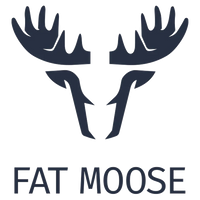3 af Europas hårdeste ultraløbsløb
Ultraløb er en spændende sport, der skubber en atlets fysiske og mentale udholdenhed til det yderste. Det er en af de mest ekstreme sportsgrene i hele Europa, og dens historie kan spores så langt tilbage som et århundrede.
I moderne tid er ultraløb blevet konkurreret i to løbskategorier, der enten involverer løb over fastlagte distancer på -50 kilometer, 100 kilometer- eller sættider på -6 timer, 12 timer, dage eller endda måneder. 50 miles og 100 miles er også populære distancer.
Ultraløb kan køres på stier, baner og veje, men for at et løb kan betegnes som hårdt, skal det omfatte alvorlige udfordringer såsom utrolige distancer, hårde temperaturer, ugunstige vejrforhold, ujævnt terræn, stejle stigninger og endnu stejlere nedkørsler .
Derfor kræver det årevis af selvopofrende træning, disciplin og forberedelse at blive ultraløber. Derudover skal ultraløbere kunne sove på de mærkeligste steder, såsom bjergtoppe eller hytter på gletsjere langt fra komforten i deres hjem. De skal også spise let mad, og det skyldes, at de ikke kan bære meget, da de skal løbe med deres mad og vandforsyninger under konkurrencer.
Disse ondskabsfulde udyr er kun forbeholdt de modigste, mest vovede og eventyrlystne løbere, der ikke ville have noget imod at sætte deres sind og krop på prøve. På trods af at konkurrencer bliver mere opslidende som årene går, fortsætter tusindvis af ultraløbere med at deltage i adskillige ultraløb rundt om i Europa.
Lad os tage et kig på 3 af, hvad der anses for at være de mest udfordrende ultraløbsløb i Europa.
Ultra-Trail du Mont-Blanc (UTMB)
Ultra-trail du mont-blanc (UTMB) er formentlig et af Europas mest ekstreme og prestigefyldte ultraløb. Dette løb finder sted en gang om året i enten den sidste weekend i august eller den første weekend i september i bjergresortet Chamonix.
Efter Tour du Mont Blanc-ruten gennem Frankrig, Italien og Schweiz strækker den sig over en afstand på omkring 171 kilometer, en samlet højdestigning på omkring 10.040 meter, og den køres mod uret.

Over 2.500 atleter tager hvert år ned til alperne for at tage på dette brutale løb, hvilket gør det til et af de største i Europa. Højdepunktet på en syv-dages festival med base omkring Chamonix i Frankrig, UTMB, er en stor ting.
Denne konkurrence tiltrækker nogle af de bedste ultraløbere rundt om i verden, som kommer for at konkurrere indædt om UTMB-titlen. For at kvalificere sig til at konkurrere skal en racer have en akkumulering af nok racepoint fra deltagelse i andre ultramarathons inden for en toårig periode.
Spartathlon
Spartathlon er et 246 kilometer langt ultraløb, der normalt afholdes omkring slutningen af september i Grækenland. Det køres på den historiske rute mellem Athen og Sparti, den moderne by på stedet for det gamle Sparta.
Dette ultraløb er baseret på Pheidippides' løbetur, som siges at have løbet fra Athen til Sparta på halvanden dag i jagten på hjælp mod perserne. Det begyndte som en konkurrence i 1983, og et år efter forsøgte fem Royal Air Force-officerer kurset.
Spartathlon er et meget krævende løb, ikke kun på grund af distancen, men også på grund af skæringskravene, bjergrigt terræn og vejrforhold. Løberne forventes at gennemføre dette 246 kilometer lange løb på 36 timer. Det er næsten det samme som at løbe seks maratonløb ad gangen.
Femoghalvfjerds checkpoints er placeret i løbet af løbet for at sørge for mad- og vandforsyninger og for at diskvalificere løbere, der ikke overholder tidsfristerne eller af sikkerhedsmæssige årsager.
Tor Des Géants
Tor des Géants , som kan oversættes til Tour of Giants, er et udholdenhedsløb, der finder sted i september i Aosta-dalen, Italien. Fysiske og psykiske styrker samt rigid træning er kravene til dette løb.
Dette løb strækker sig over en samlet længde på 330 kilometer og tager løbere ind i svære højdestier på op til 3.300 meter og højder, der når 24.000 meter, som skal gennemføres på mindre end 150 timer.
I betragtning af de betydelige højdevariationer gennem løbet, kan vejret være meget udfordrende for løbere. De kan opleve sol, regn, vind eller endda sne. På grund af sværhedsgraden af dette løb undlader mange løbere at gennemføre det, hvilket gør det til et af Europas sværeste.
Konklusion
Efter alt det, der er sagt, er det krystalklart, at ultraløbsløb ikke er for sarte sjæle. At blive ultraløber er ikke en dags job; det kræver årevis af flittig mental og fysisk træning og ofre at påtage sig disse monstrøse bedrifter. For mange kan det virke umuligt, men ære venter kun dem, der er villige.
Hos Fat Moose har vi ikke løbetøj, men vi har "after race"-tøj og behageligt tøj. Så hvis du allerede er en ultraløber eller tror, at du har det, der skal til for at blive det, har vi det perfekte tøj til at holde dig komfortabel og varm lige efter, du er færdig med dit løb.


